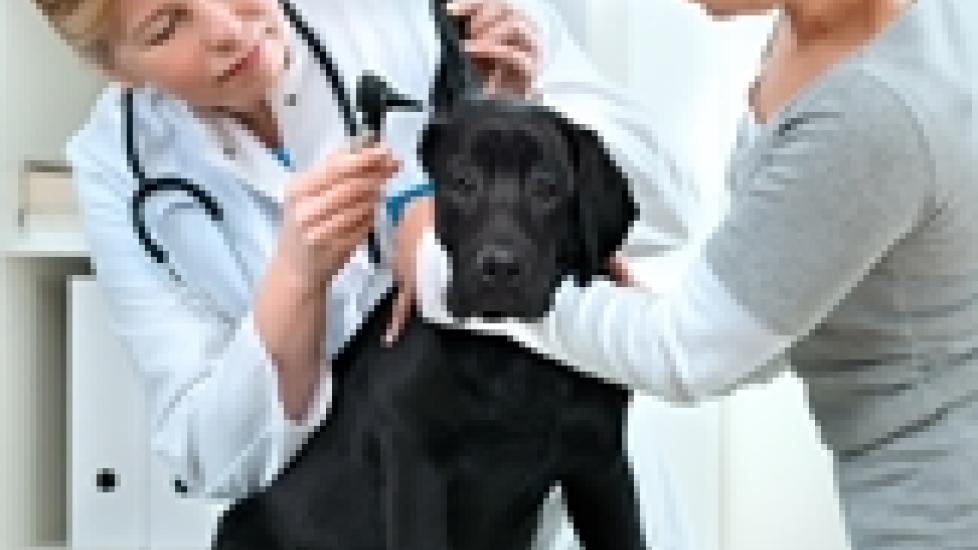Can You Trust Your Vet's Advice?
Last week ABC aired a segment on 20/20 describing the story of a former veterinarian who was “forced” to leave the profession because he often felt compelled to recommend what he considered unnecessary tests and procedures on otherwise healthy pets in order to maintain revenue.
In the opening scene, he describes an instance where he instructed owners to simply monitor a mass they noticed on their dog’s skin because he strongly felt it was benign. The practice owner, a senior veterinarian, caught wind of his conservative recommendation and openly chastised him.
The “less experienced” veterinarian stated that he was directly instructed by his superior to instill fear in the owners by mentioning the “C word” (cancer) to describe the mass, thereby implying it was something more insidious.
Naturally, once concern for a malignant tumor was raised, the owners conceded to testing the mass. The results confirmed it was a benign fatty tumor.
To an unsuspecting owner, this story could easily incite anger and reinforce the idea that veterinarians are truly in it solely “for the money.” It also could call into question whether they truly needed to have the skin lump checked out in the first place. After all, it’s going to cost “X” many dollars just to walk through the door, and then “X” many dollars for an unnecessary test, because they saw on TV that a “good” vet can tell whether something is concerning or not based on appearance.
We are taught in veterinary school the exact opposite of what this portion of the program suggested: It is impossible to determine if a skin tumor is benign or malignant based on appearance or feel alone. At minimum, it is ingrained into us that every skin mass should be tested with a fine needle aspirate and cytology, and if this relatively simple and non-invasive test is inconclusive, a biopsy should be considered.
Eighty percent of skin masses in dogs and cats will be benign and 20 percent will be malignant. How do we know this? Because veterinarians recommend testing all lumps and bumps when they are noticed!
As an oncologist, I see far too many cases where owners are told to just “watch” a skin tumor with absolutely disastrous results. Tumors that were present for years can turn out to be high-grade cancers. The longer a tumor is present, the greater the chance for invasive growth, which could ultimately render it non-resectable, and also increase the chance for spread to distant sites in the body.
A subplot of the program included a portion where the reporters conducted an “investigation,” where they brought two dogs (previously determined to be healthy by the same veterinarian) to nearby veterinary clinics and secretly recorded what transpired in the exam room.
The doctors concurred the pets were very healthy, yet several recommended they both could benefit from a dental cleaning as a means to address underlying minor oral disease. The footage clearly showed the vets physically pointing out their concerns by showing the owners the dogs’ mouths and what they were worried about. The upshot of the piece was that the veterinarians were recommending an unnecessary and overtly risky procedure designed solely to generate income at the expense of the pets’ health and the owners’ wallets.
The most concerning part to me occurred when a veterinarian clearly shows the owner a mass on her dog’s gingiva (otherwise known as the “gumline”), yet this is completely ignored by the reporters and not addressed in the segment.
I can cite multiple examples of patients I’ve seen where oral tumors were incidentally diagnosed and biopsied during “routine” dental cleanings, and here we are staring at a patient with a visible oral mass, where the doctor is recommending something be done as soon as possible, and this aspect of preventative care is completely overlooked.
Veterinary care is expensive, and I know not every owner can afford every test or every procedure I may recommend. Alternatively, I know not every veterinarian practices with the same ethics and morals I consider to be “standard of care.”
However, denigrating the value of preventative medicine does nothing to enhance the value of the work we do, and ultimately creates additional expense for the average pet owner.
We accept routine dental care for ourselves. We schedule mammograms and colonoscopy procedures with the hope of a clean bill of health, but if something concerning should be found, it can be addressed at an early stage. Why then do we call into question the ethics of veterinarians who recommend a similar standard of care for our pets?
Routine preventative medicine is still the single most effective means to avoid significant health issues as pets age, and would certainly be more effective in diagnosing cancer at an earlier, and likely more treatable, stage.
I’ve developed a thick skin over the few years I’ve practiced my craft. However, as is true for many professions, there are times when the daily grind becomes a bit unbearable. Watching this news segment tweaked an already inflamed nerve for me.
I’ve stated before how the veterinary profession is replete with accusation and is relatively absent of gratitude. Yet I still hold hope that the general public who watched this segment would see beyond the sensationalism and understand the bias.
Savvy pet owners should understand the difference, and recognize the value of preventing problems rather than treating them after the fact.

Dr. Joanne Intile
Image: Alexander Rath / Shutterstock
